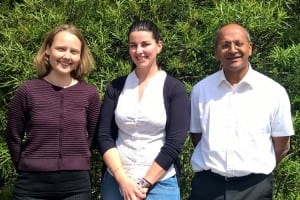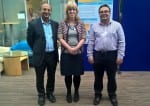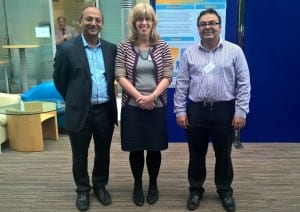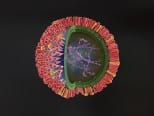 An article entitled, ‘Feeling reassured: the glue that holds together patients’ experiences of ambulance service care’ was published in the autumn (September) issue of Ambulance Today. The article by Prof Niro Siriwardena and Fiona Togher, based on work undertaken as part of the National Institute for Health Research funded five-year Programme for Applied Health Research co-led by Prof Siriwardena together with doctoral research by Fiona Togher, describes findings from a recent paper published in Health Expectations.
An article entitled, ‘Feeling reassured: the glue that holds together patients’ experiences of ambulance service care’ was published in the autumn (September) issue of Ambulance Today. The article by Prof Niro Siriwardena and Fiona Togher, based on work undertaken as part of the National Institute for Health Research funded five-year Programme for Applied Health Research co-led by Prof Siriwardena together with doctoral research by Fiona Togher, describes findings from a recent paper published in Health Expectations.
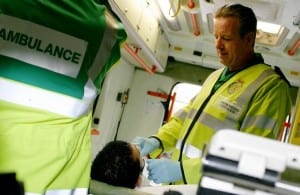 The article, ‘Reassurance as a key outcome valued by emergency ambulance service users: a qualitative interview study’, describes how healthcare quality incorporates the important of patient experience as well as safe and effective clinical care and what patients feel contributes to a good experience. The original study involved 22 patients who had recently experienced care from the ambulance service together with eight spouses. The interviews revealed that the ability of ambulance staff to reassure patients was the ‘glue’ that held together patients’ experiences: if patients did not feel reassured during their care this adversely affected their overall experience.
The article, ‘Reassurance as a key outcome valued by emergency ambulance service users: a qualitative interview study’, describes how healthcare quality incorporates the important of patient experience as well as safe and effective clinical care and what patients feel contributes to a good experience. The original study involved 22 patients who had recently experienced care from the ambulance service together with eight spouses. The interviews revealed that the ability of ambulance staff to reassure patients was the ‘glue’ that held together patients’ experiences: if patients did not feel reassured during their care this adversely affected their overall experience.
[su_document url=”https://communityandhealth.dev.lincoln.ac.uk/files/2015/09/Siriwardena-Togher-Feeling-reassured-AT-2015.pdf” responsive=”no”]Multi-morbidity, goal-oriented care, the community and equity[/su_document]Patients expected the clinical care delivered by ambulance staff to be safe and effective, but what affected their experience and their feeling of being reassured were other aspects of care such as professionalism (demeanour and conduct), good communication (sensitive to the needs of patients and their relatives), responsiveness (timeliness that met needs rather than simply a rapid response), and continuity (effective handover to hospital or community pathways). The research is part of the Prehospital and Emergency Quality and Outcomes (PEQO) workstream at CaHRU and has contributed to Fiona’s doctoral research on the development of a Patient Reported Experience Measure (PREM) for use in NHS ambulance services.



